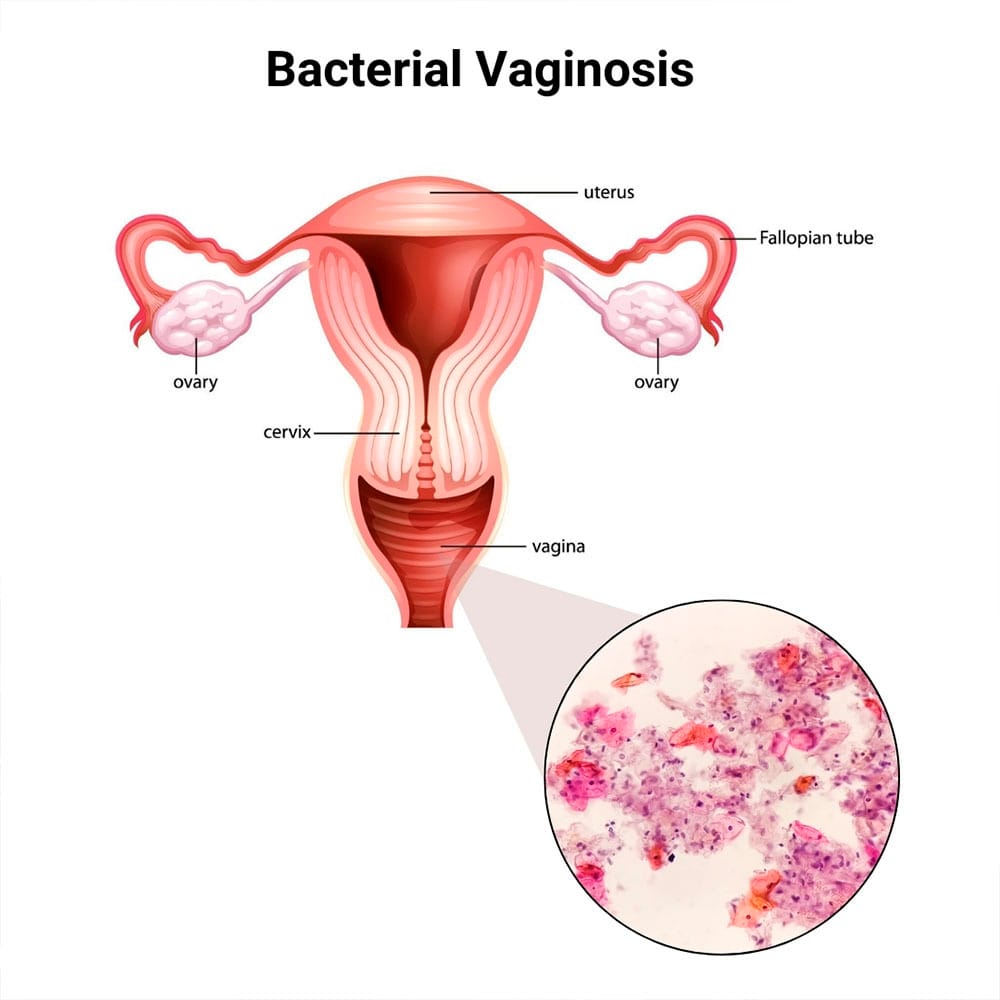What Is Bacterial Vaginosis?
 Bacterial vaginosis (BV) is a condition that happens when the bacteria that naturally lives in your vagina changes. If there’s more bad bacteria than good, you can get BV. It’s the most commonly occurring vaginal malady in women in their child-bearing years.
Bacterial vaginosis (BV) is a condition that happens when the bacteria that naturally lives in your vagina changes. If there’s more bad bacteria than good, you can get BV. It’s the most commonly occurring vaginal malady in women in their child-bearing years.
Any woman can get it at any age, but you may be more likely to get BV if you’re:
- Pregnant, due to changing hormones
- African American, making you twice as likely than Caucasian women to get it
- Not using condoms, creating an environment to cause this to be a sexually transmitted disease
You’re also at higher risk if you have a new sexual partner, many partners or even an IUD. Bacterial vaginosis should be treated quickly. If left unchecked, it could lead to a greater risk of other sexually transmitted diseases, including HIV. It can also cause problems with pregnancy, such as premature birth or low birth weight.
In Midtown NYC, Dr. Felix Cohen and his team of feminine health care experts at Cohen Medical Practice (CMP) provide exceptional diagnoses and effective treatment options for bacterial vaginosis and other STDs. They offer a full range of gynecological services designed to serve you from puberty through menopause.
How Is Bacterial Vaginosis Diagnosed?
It can be difficult to diagnose BV because there may be no symptoms. Most often, the condition is characterized by an unusual vaginal discharge. The problem is that the symptoms are almost identical to a vaginal yeast infection.
Other than a discharge, the symptoms of bacterial vaginosis may include:
- Itching or vaginal irritation
- Burning sensation when urinating
- Strong fishy smell, particularly after sex
If you’re experiencing any of these symptoms, your CMP doctor can diagnose the problem by taking a sample of the discharge and checking the bacteria under a microscope. They may also check the pH level of the discharge. They can then make an accurate diagnosis and treat you properly. BV is normally treated with antibiotics while yeast infections typically are treated with over-the-counter medicines.
Does Bacterial Vaginosis Disappear on Its Own?
Because BV is a bacterial imbalance, it doesn’t go away on its own. It must be treated with a full course of antibiotics. Men can’t contract bacterial vaginosis, but women who have lesbian sex risk giving it to their partner.
Ways to avoid catching BV from your female partner include:
- Having sexual encounters without exchanging vaginal fluid
- Using a dental dam
- Placing condoms on sex toys, to be changed after each use
A dental dam is a female condom. It’s a thin latex sheet that’s put over the entire vaginal area. Although it may put a bit of a damper on your love life, it’s better to be safe.
The consequences and side effects of untreated BV can include:
- A higher risk for STDs, such as chlamydia, genital herpes and gonorrhea
- A serious inflammatory condition called pelvic inflammatory disease that increases the risks of having an ectopic pregnancy
- A uterine infection that can lead to infertility
- Early labor if you’re pregnant, jeopardizing a healthy birth
How Can I Avoid Bacterial Vaginosis?
You can reduce your risk of getting BV by making a few lifestyle changes. Rarely do women who have never had sex, get BV, but chastity is not for everyone.
If you’re looking to circumvent this condition and still have a satisfying love life, try:
- Reducing your number of sexual partners
- Using only warm water around your vagina, no soap
- Avoiding douching
Each of these points can lower your probability of getting BV. It’s all about maintaining that perfect balance of bacteria. Circumcision also cuts down on bacteria, which your male partner can transmit to you, even though the bacteria won’t necessarily affect him. Additionally, your chance of acquiring BV is more likely when you’re having your period.
What Should I Do if I Think I Have Bacterial Vaginosis?
If you think you have BV, see your CMP gynecologist as soon as possible. Although it’s not life-threatening, if you don’t have it treated promptly, it can cause further physical problems. If your doctor confirms that you have BV, you get a prescription for antibiotics.
The next steps include:
- Finishing your entire prescription
- Telling your sexual partner, provided she’s female
- Not having sex until your treatment is complete
Call your healthcare professional if the symptoms don’t go away or come back after finishing the antibiotics. BV is a minor inconvenience if it’s caught right away. Any problems with your genitals should be assessed by a doctor immediately. Contact Dr. Cohen at Cohen Medical Practice (CMP) as soon as any unusual gynecological symptoms appear. Dr. Cohen and his staff can help you with all types of women’s health issues, including:
- Pelvic pain
- Abnormal bleeding
- Premenstrual syndrome (PMS) Dysmenorrhea>
- Vaginal pain
- Polyps, fibroids and tumors
- Fertility issues
- Vaginal and vulvar cosmetic procedures
- Birth control

